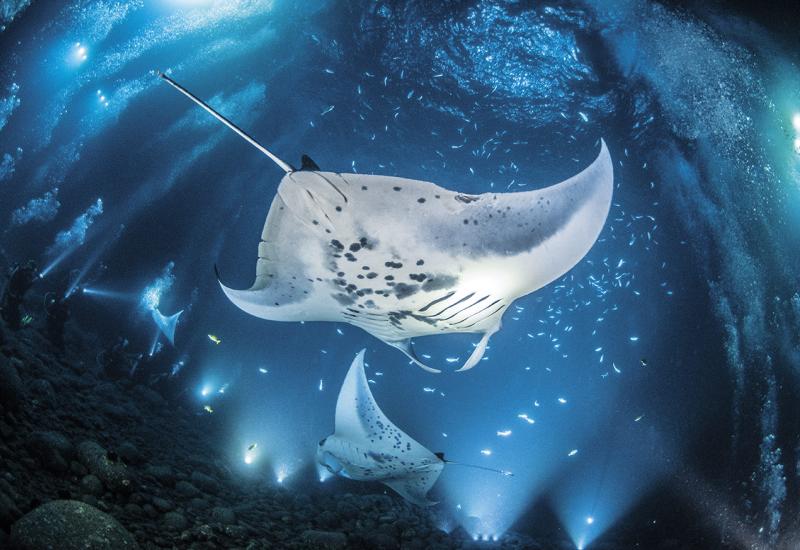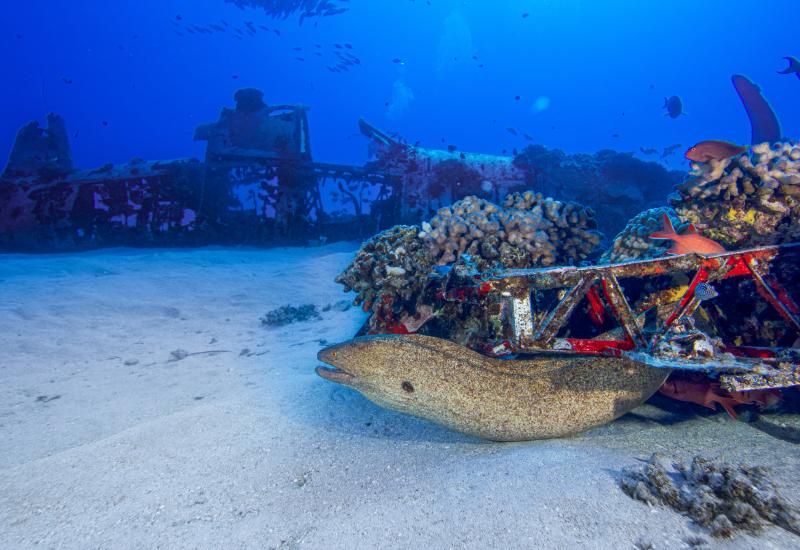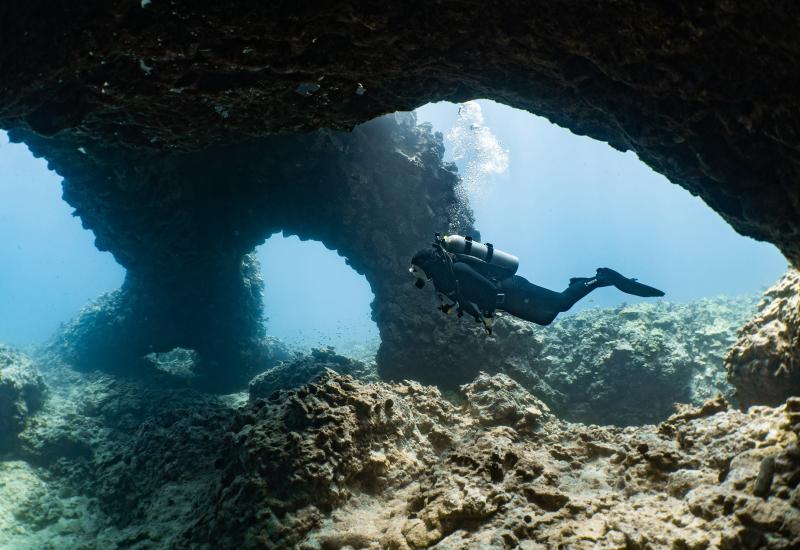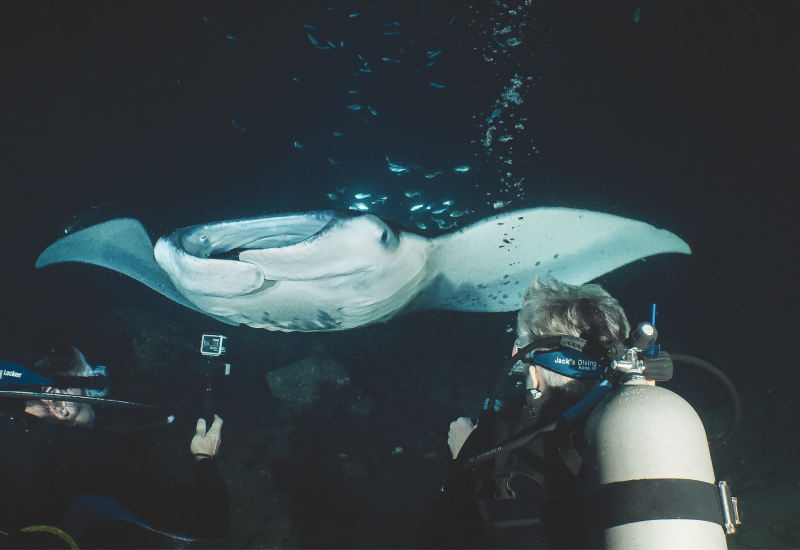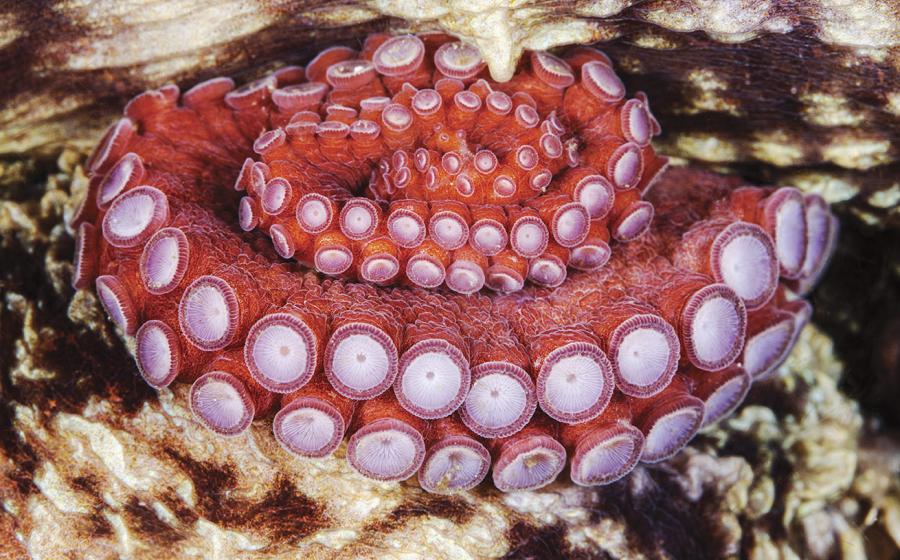Focusing on Ocean Health and Community Pulls Hawaiian Dive Shop Through Pandemic
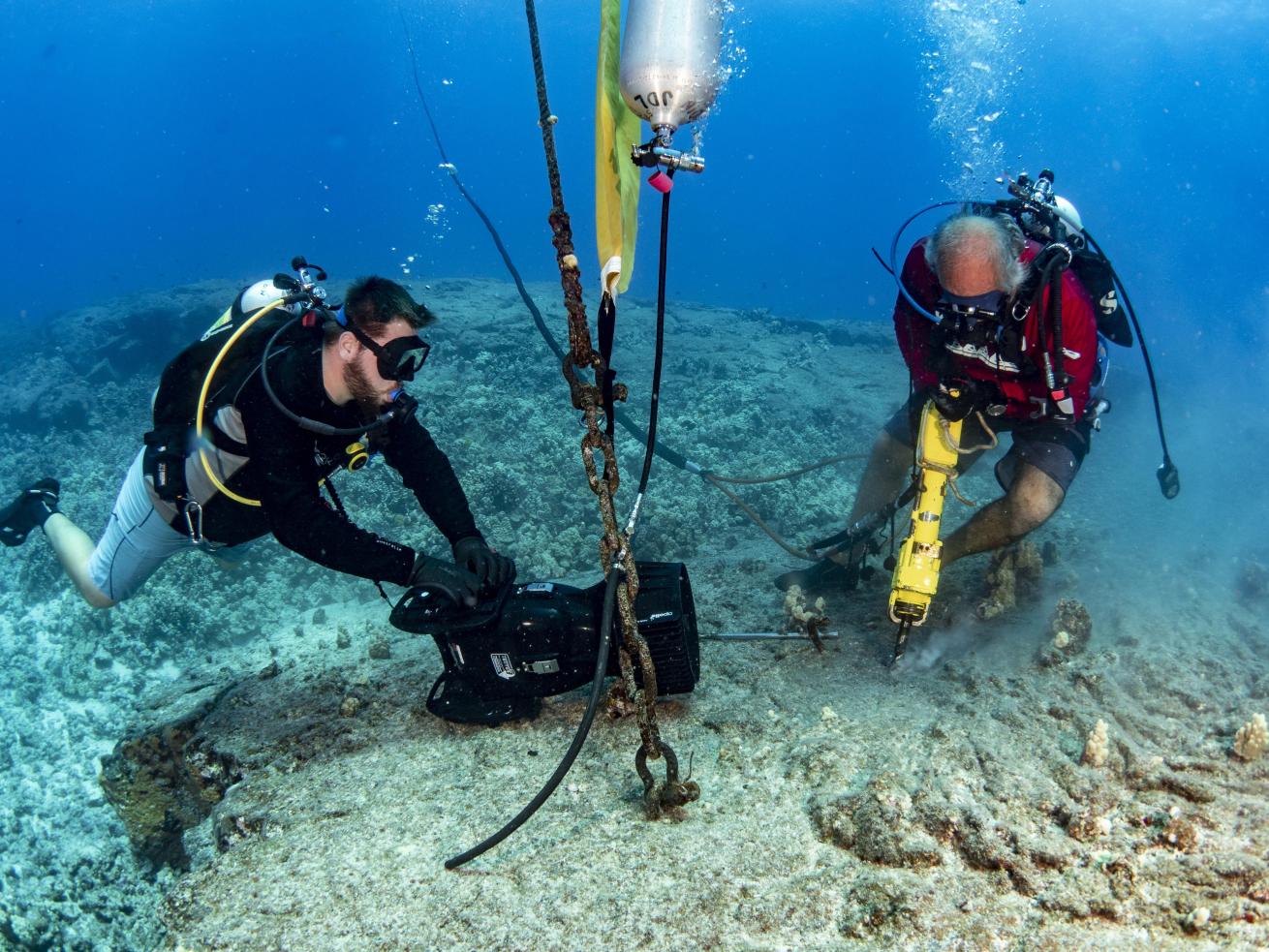
Courtesy Jack's Diving LockerDivemasters at Jack's Diving Locker tended to 83 mooring buoys around Kona, commercial work considered essential, while the Payroll Protection Plan covered their salaries.
“Everyday we’re trying to pull a new rabbit out of a hat,” says Teri Leicher, co-owner of Jack’s Diving Locker.
Since business-as-usual crumbled in March, Teri Leicher and her husband Jeff have pulled out rabbit after rabbit, keeping their dive shop afloat by supporting their community and protecting ocean health.
From April through June, the Leichers protected Hawaii’s reefs and avoided layoffs, using nearly $30,000 of their payroll protection plan money to have staff complete $20,000 worth of repairs on 83 mooring buoys.
Now they are onto connecting the next generation to these same waters. In September, Jack’s Diving Locker used CARES grant to offer 121 scholarships for their youth programs. School-aged children enjoy water activities like scuba classes, lessons about marine life, do beach clean ups and, in partnership with the Nakoa Foundation, learn traditional Hawaiian sailing.
“We have parents that have literally been so grateful [for the camp experiences and childcare necessary to return to work] that they’ve been in tears,” says Leicher.
Moolah for Moorings
If you’ve used a day-mooring buoy in Hawaii, chances are you can thank the Leichers. There are approximately 220 such state-owned buoys around the Hawaiian Islands, and the Leichers installed upwards of 175 of them through their nonprofit, the Malama Kai Foundation, (which is Hawaiian for ‘to care for the sea').
Not only do these moorings save Hawaiian reefs from lethal anchor strikes, they helped save several jobs once COVID hit.
Jack’s Diving Locker received federal funding for staff salaries in April through the Payroll Protection Plan, one of less than six percent of businesses nationwide to receive money in the first round of grants. The grant could only be used to pay workers, so it covered the staff handling an influx of gear repairs, and education staff sheltered at home producing educational videos.
But with one of the shop’s two locations closed, and no tours allowed, there was not enough recreational work for their divemasters or captains.
So the Leichers did what they have done for decades – turned to the sea. Since commercial work was deemed essential, they paid a team of about ten employees to survey the day moorings along the Kona coast. Armed with DPVs, ropes, underwater drills and other specialized tools, trained divers and a boat captain assessed and repaired more than 80 moorings between Kealakekua Bay and Upolu Point. Donations to Malama Kai covered the thousands of dollars in materials.
Extended Horizons Scuba did the same on Maui, Seasport Divers on Kauai, and other dive shops tended to several outer islands.
While maintaining the present, the team also worked to improve the system’s future. Victoria Martocci, secretary of the Malama Kai Foundation and operations manager of Extended Horizons Scuba, created a new online system to track mooring maintenance. Currently an internal system, Leicher says the foundation plans to launch it online, allowing any boater to report a mooring issue.
“I think it will be able to help the state and the operators [keep better track of mooring quality] when we're completely finished with it,” she said.
Sea School Supplements Remote Classes
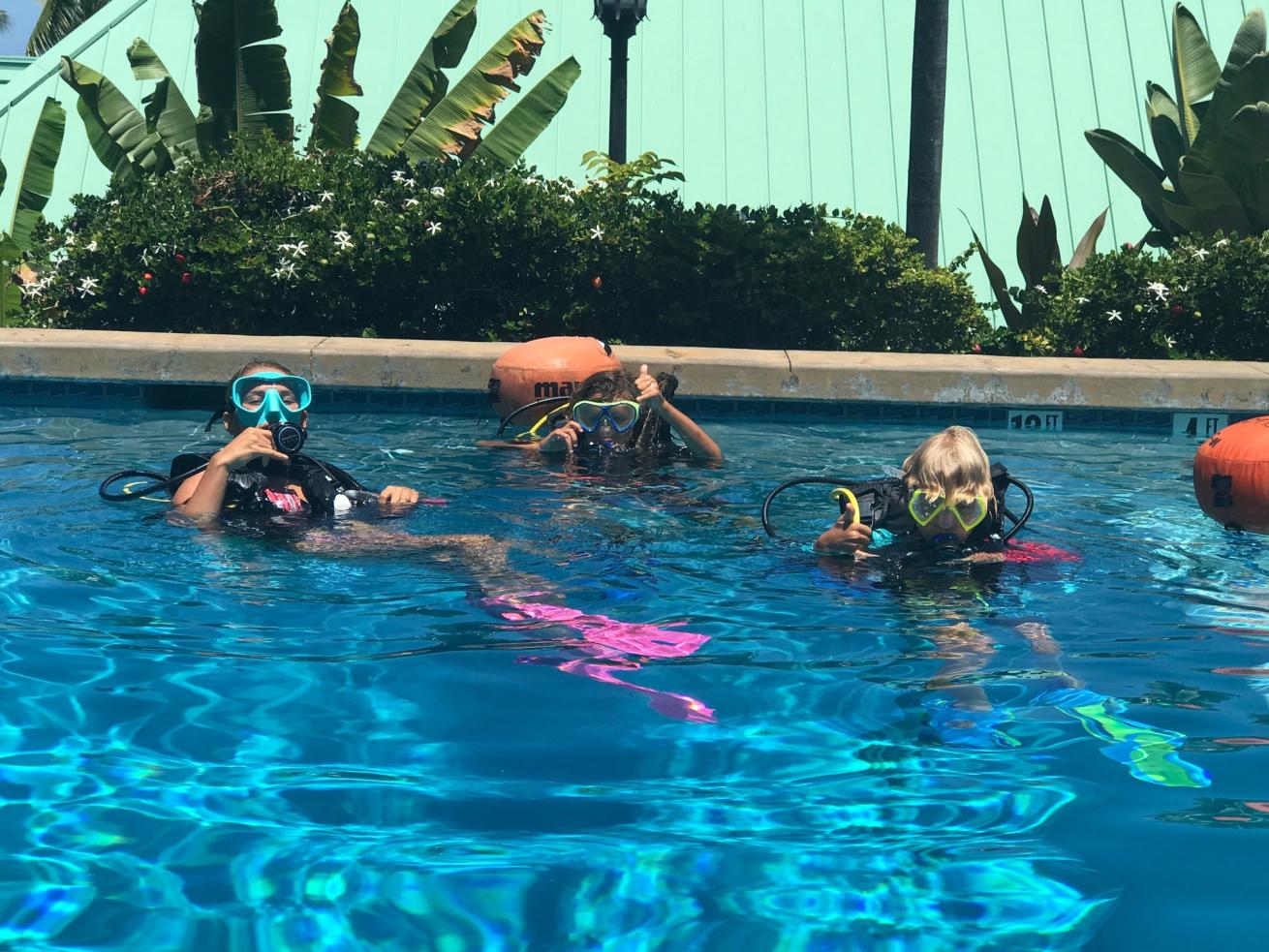
Courtesy Jack's Diving LockerChildren float in the pool at Jack's Diving Locker during their fall Kids Sea Camp thanks to scholarships from the Malama Kai Foundation funded by several CARES grants from the county of Hawaii.
Summer programs have been a staple at Jack’s Diving Locker since 1985, with kids queuing up summer after summer for Dolphin and Whale Camp or advanced scuba certifications.
When the dive shop’s typical summer camps wrapped up this August, however, programming immediately resumed in September thanks to childcare and family resilience CARES grants given by the County of Hawaii to the Malama Kai Foundation. The foundation is one of five funding recipients.
Children whose parents are essential workers, unemployed or whose incomes are below a certain threshold could qualify for a scholarship from Malama Kai to take part in one of several marine camps run by Jack’s Diving Locker and the Naoka Foundation from September to mid-October. The 121 scholarships ran out in less than two days.
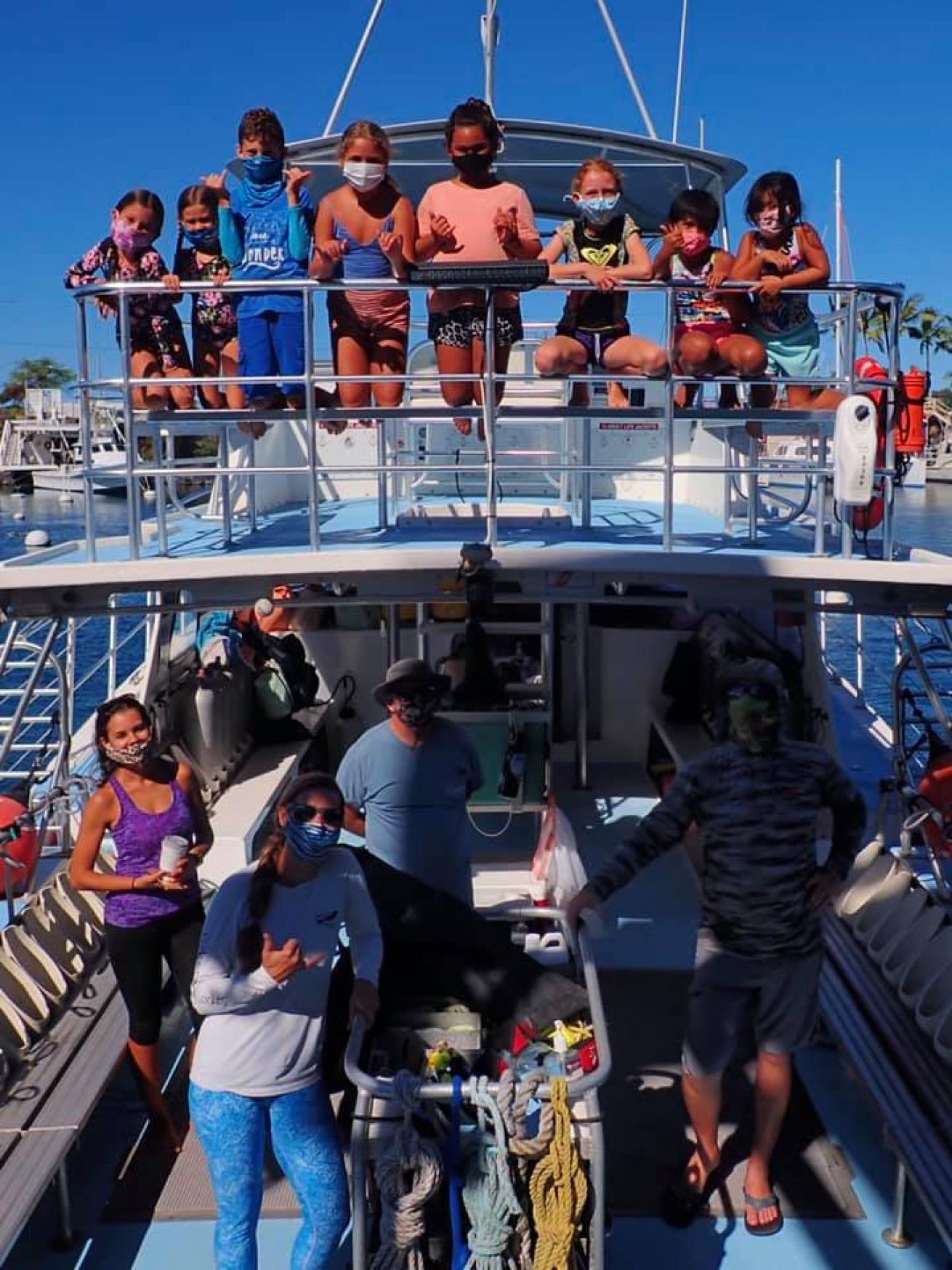
Courtesy Jack's Diving LockerKids Sea Camp participants get ready to hit the water. Over 120 children received scholarships to participate, and more than 100 are on the waiting list.
“It’s an opportunity to supplement distance learning and also allow the parents the opportunity to get back to work,” said Leicher.
The shop offers participants breakfast and lunch, meals often provided by schools, and accommodates children’s varied distance learning schedules. Some kids attend their school remotely for an hour in the morning to gather their daily assignments. Others are in school all morning, and participate in afternoon camp activities.
“A lot of the principles are like, you know what, as long as they check in each morning, I just think that it's so much healthier for them to be able to be out doing these activities and learning” science through the marine life program, social studies through cultural activities like traditional sailing, and getting P.E. through the water sports, Leicher says.
“We are pleased with the service they are providing to our island children,” said Sharon Hirota, executive assistant in the county mayor’s office.
Program participants are typically sorted into “bubble groups” of six. Groups generally stick together while rotating through four one-week camps to limit the potential spread of COVID in the event a participant were to attend while sick. Other precautions include daily temperature checks, hand sanitizer and strict mask policies.
The Leichers hope the county will renew the funding so they can reprise the fall camps for families on the waitlist, and plan to continue the scholarship program in the future through donations to Malama Kai.
Related:

